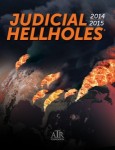On June 26, 2015, the U.S. Supreme Court issued its long-awaited decision in Obergefell, et al. v. Hodges, Director, Ohio Department Of Health; Tanco, et al. v. Haslam, Governor Of Tennesee, et al.; DeBoer, et  al. v. Snyder, Governor of Michigan, et al.; and Bourke, et al. v. Bershear, Governor of Kentucky, and ruled five to four that the equal protection guarantee provided by the 14th Amendment to opposite-sex marriages extends to same-sex marriages. The SCOTUS opinion, authored by Justice Kennedy, holds that “same-sex couples may exercise the fundamental right to marry in all States [and] that there is no lawful basis for a State to refuse to recognize a lawful same-sex marriage performed in another State on the ground of its same-sex character.”
al. v. Snyder, Governor of Michigan, et al.; and Bourke, et al. v. Bershear, Governor of Kentucky, and ruled five to four that the equal protection guarantee provided by the 14th Amendment to opposite-sex marriages extends to same-sex marriages. The SCOTUS opinion, authored by Justice Kennedy, holds that “same-sex couples may exercise the fundamental right to marry in all States [and] that there is no lawful basis for a State to refuse to recognize a lawful same-sex marriage performed in another State on the ground of its same-sex character.”
With same-sex couples now having the same rights as opposite-sex couples, how will the decision affect employers and what can employers expect as an outcome?
More Lawsuits?
With the new decision, much of what employers provide and are mandated to provide to employees, such as those rights granted by the Family and Medical Leave Act (FMLA) and other employee benefits, may change to include same-sex couples. Although the U.S. Department of Labor modified its definition of “spouse” in the FMLA back in March 2015, employers must verify they are granting all eligible employees in same-sex marriages their FMLA rights. Speaking of the U.S. Department of Labor, we expect that there will be guidance from it soon.
Employers can also expect more lawsuits under Title VII of the Civil Rights Act of 1964. Although Obergefell, Tanco, DeBoer, and Bourke are not employment cases, the Supreme Court’s decision implicates employment laws. Claims of transgender, sexual orientation, and/or gender discrimination may increase as gender identity and expression continue to be a topic of discussion. Likewise, discrimination based on marital status may give rise to lawsuits in certain states under state anti-discrimination laws.
Health and Welfare Plans Update
One of the biggest impacts the U.S. Supreme Court decision will have on employment is on employee benefits. Medical insurance coverage and taxes will change, so employers should be prepared to accommodate such changes in its policies and contracts. We expect the Internal Revenue Service will provide guidance soon.
Employee Handbook and Company Policies Update
Employers are also well-served to update their employee handbooks to reflect and extend the rights given to the opposite-sex spouses to same-sex spouses to minimize litigation risks. Employers must also revised its enrollment processes, such as updating its consent and eligibility forms, to ensure that they comply with the new rule.
We will continue to update you on the impact of the decision on employee benefits in greater detail soon.
This article previously appeared on the Seyfarth Shaw website.



